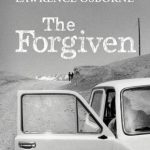
The short subtitle to this novel could be, ‘Drunken British man kills Moroccan roadside thief’. That would not do justice to either the readability or the complexity of this thought-provoking novel.
The Forgiven is so much more than a crime novel with an end point brought about by the pursuit of reasoned moral rectitude. Lawrence Osborne expertly draws the human parallels in this two-sides-to-every-story telling of a tragedy involving Berber ‘peasants’ and Western ‘infidels’ in the remote Moroccan desert.
His exploration of the mores of both cultures provides an unlocking of mutually unfamiliar values, which are what sometimes define the ‘corruption’ we perceive in others.
Alongside reciprocal prejudices, mutual suspicions, value judgements and jealousies, these lives play out against a background of contrasts: a venal middle-aged British couple, slightly past their best and prone to drink too much, attend an extravagant party at the ksar that has been lavishly refurbished by their Western friends, a gay couple, along with a louche band seeking sensual pleasure; the moralistic ‘servants’ are the local Berber Muslims who, though willing to take the Western shilling, view this ‘haram’ bacchanalian display as something approaching depravity, the Moroccan father, like his violent dead son, is sly and deceitful, and the lack of Muslim women is comment in itself.
John Gray, who says that Osborne subverts the crime genre, tells us that his immersion in other cultures differentiates him from writers he’s been compared to, such as Graham Greene or Paul Bowles. He has worked as a journalist, travel writer and essayist and lived in France, Turkey, Mexico and Bangkok. The Forgiven reflects a period he spent in Morocco. This allows him something approaching an objective examination that enables us to inhabit a different world.
Dr Gray goes on to say, ‘The belief that our lives can be fashioned by our decisions may help turn our days into a meaningful story, but it can also be dangerous. It blinds us to our actual experience, in which we find ourselves moved by shifts in our surroundings, ephemeral moods and inexplicable desires. Not knowing why we act is what makes us human, and it is in showing how our belief in our own autonomy can derail us that the work of Lawrence Osborne is so arresting and compelling.’
The inevitable comparisons to The Great Gatsby are not entirely unjustified, but the timing is post-Colonial rather than post-WW1, early 21st century rather than early 20th. In our post-colonial world, some people are easily drawn into a one-sided condemnation of the modern West (have a look at some Goodreads reviews) without critically wondering what the world might otherwise be like.

Recent Comments